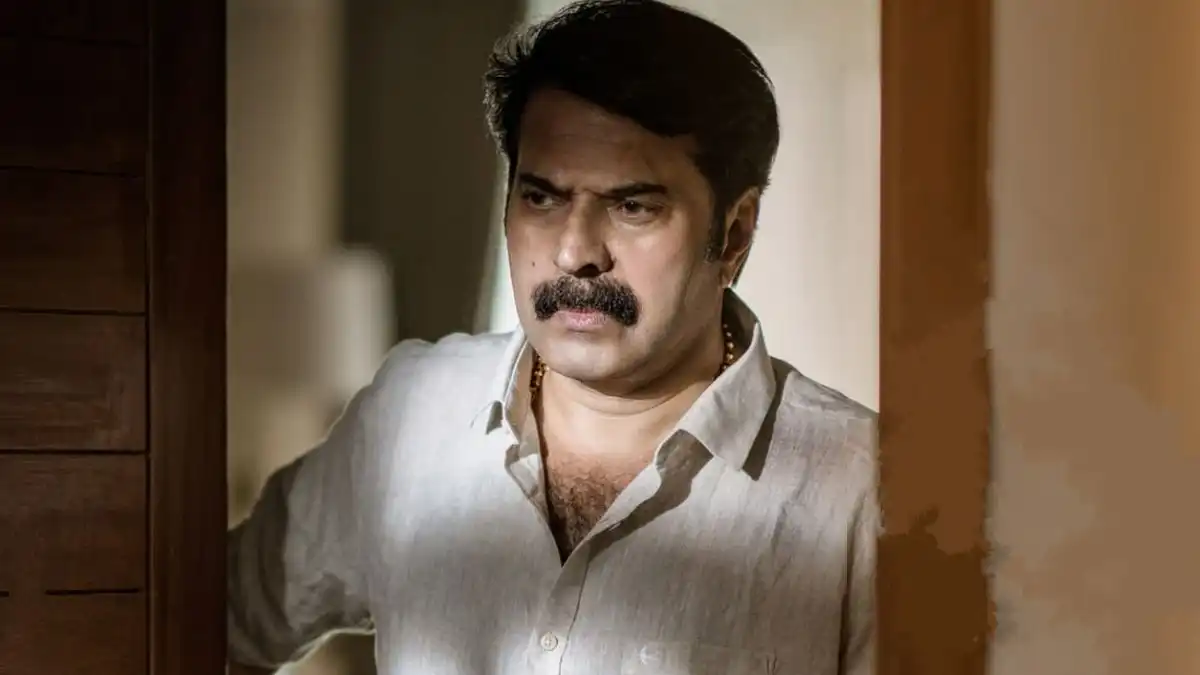Puzhu Review: Mammootty shines as a nameless character in this psychological thriller
Ratheena PT's directorial debut Puzhu is an intense, gripping thriller that unlayers a complex personality and delves into certain entrenched beliefs in the society.
Jul 21, 2022

Mammootty in a still from Puzhu
Puzhu (Malayalam)
Story: Kuttan is a widower raising his only son Kichu. They have a tumultuous relationship in which the father is emotionally abusive and the son despises him. When Kichu's aunt, who has married against the wishes of the family, moves into their apartment premises, things quickly exacerbate. What follows is a series of unexpected twists and turns.
Review: The puzhu (worm) in the film is nameless and heartless! Every time it appears on screen, in this case, Mammootty's character, you feel the sensation of a bug or worm crawling on your skin. And by the time you get to the end, there is so much pent-up anger against the worm that you wish it meets a fate worse than death.
Puzhu is yet another testimony to what a brilliant actor Mammootty is. Referred to as Kuttan by some of the characters, Mammootty plays a toxic single parent in this psychological thriller, who brings up his son alone in an apartment that's hardly visited by anyone other than the residents. Kuttan is not only emotionally and psychologically abusive to his only son Kichu (Vasudev Sajeesh Marar), but he is also a lethal concoction of many complications rolled into one. He is a narcissist, bigot, a controlling personality, and suffers from obsessive-compulsive disorder as well. He also lives in a constant paranoia of getting killed by someone.
Mammootty, needless to say, effortlessly brings these emotions onto the screen. He shines as the nameless character who would go any length to prove that he is right, be it switching his son's school at the slightest face-off with his teacher or suspecting his own son of attempting to murder him. It's not often that you see such a complicated character etched so beautifully, that keeps you hooked until the last minute.
Parvathy (referred to as Achchol by Kichu), who shares screen space with Mammootty for the first time, plays his sister. She is married to a theatre artiste from an oppressed community against the wishes of her family, especially her elder brother. Though she is ostracised from the family soon after the wedding, a situation arises where she has to move into the same apartment as her disgruntled brother.
The film explores the two parallel stories of Mammootty as a parent and brother, peeling one layer at a time. While we empathise with Kichu one moment hoping that he deserves a better parent, we also sincerely hope that things change for the better if the siblings put aside their differences and reunite. Parvathy puts up a nuanced performance. Her marriage is a happy one, but she wishes to patch up with her family some day. She doesn't say much, but lets her expressions do the talking. Her husband Kuttappan hopes to bring a change in the society through his theatrical works.
Puzhu delves into the deeply entrenched caste system as well and stresses upon the fact that we still have a long way to go when it comes to treating everyone as an equal. There is a scene where Kuttan openly berates and abuses Kuttappan for falling in love with a dominant caste woman, when he should be 'cleaning toilets'. There are many other subtle and strong references to caste discrimination. For instance, the scene where Kuttappan tells his wife that he has quit smoking and subtly refers that these are the only things that can be changed. And that's not all. Puzhu also shows how women still do not have the freedom to take decisions of their lives, no matter how educated or well off they are, and how the family 'honour' is attached to them.
The story takes some time to kick off, but once it does, it keeps you glued to the seat until the end. Vasudev shines as Kichu, who is deprived of paternal love and lives in the fear of his father. And when he musters the courage to confront his abusive father, you feel like egging him on. The supporting cast do not have much to do in the film - be it the late legend Nedumudi Venu or Indrans.
The screenplay is brilliant and Jakes Bejoy's background score complements the intense scenes. Theni Eswar's camera aptly captures the eerie feel of sharing a roof with a toxic personality, especially when it pans over the dining room of the house, where not a single meal is eaten peacefully.
Verdict: Watch it for Mammootty in a never-seen- before-avatar
Share